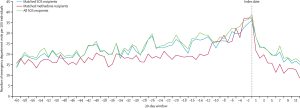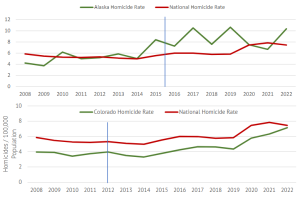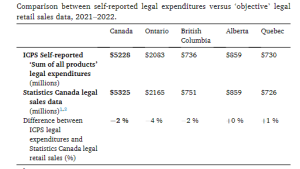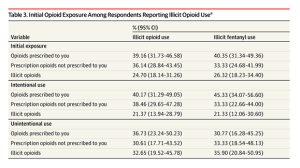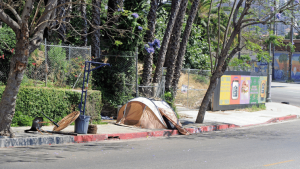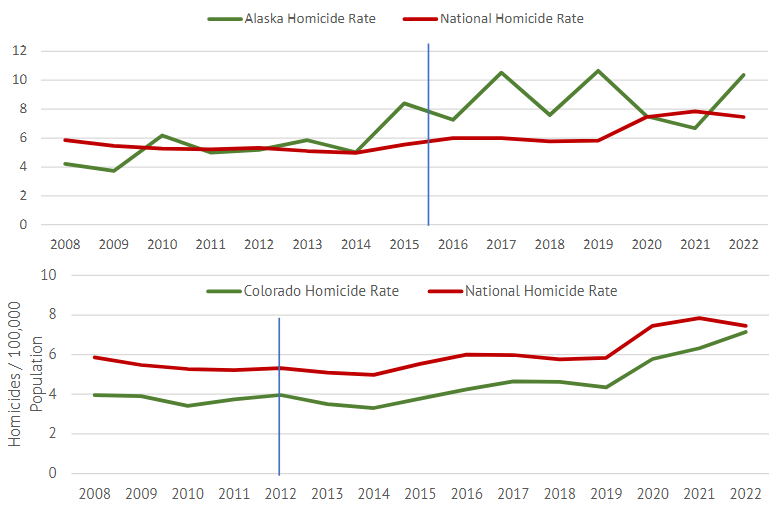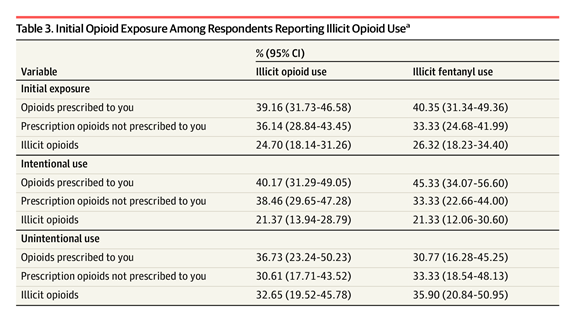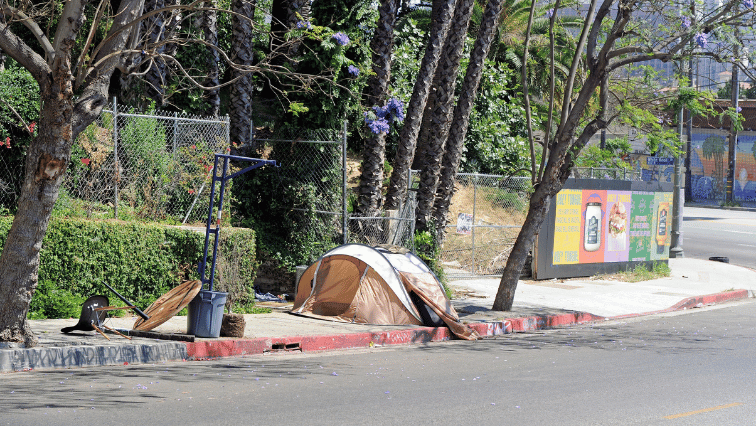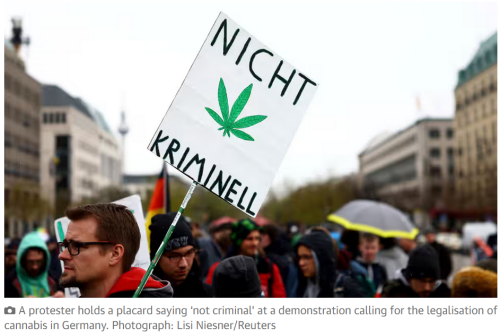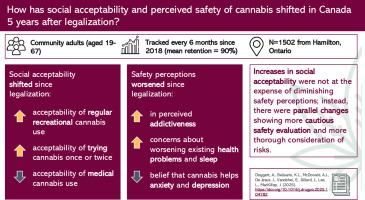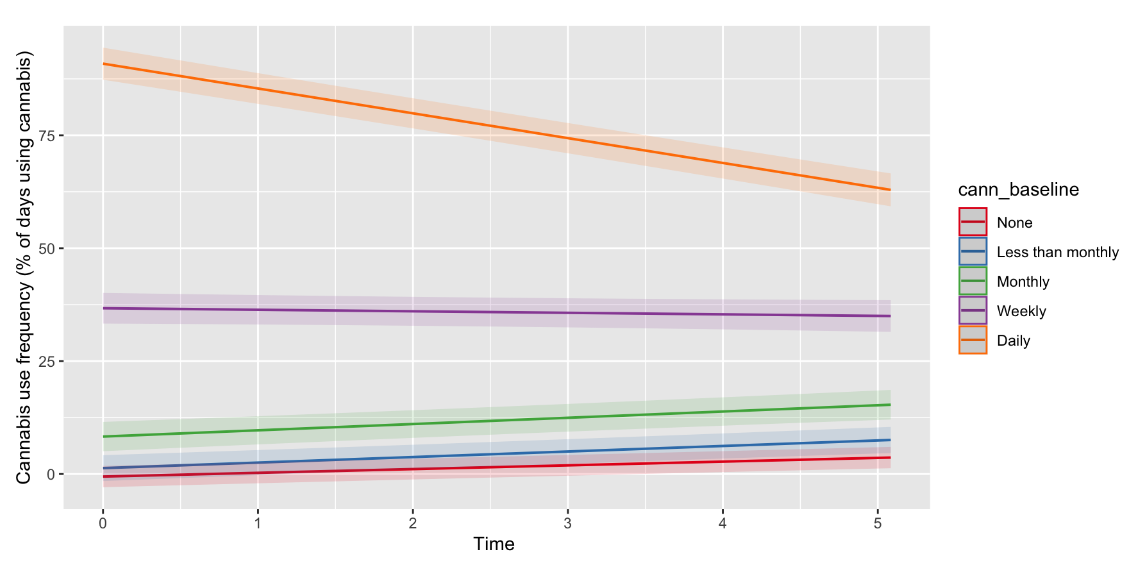SOS and methadone were associated with improvements in health outcomes, including reduced opioid toxicities and health-care use, in the year after treatment initiation. The findings suggest SOS programmes play an important, complementary role to traditional opioid agonist treatment in expanding the options available to support people who use drugs.
-
-
This review examines Berenson’s claims in light of the current literature in epidemiology, public health, and economics by reviewing his research summary and analyzing government data measuring marijuana use, mental illness, and violence. Despite Berenson’s claims, much of the literature he cites concludes that marijuana is effective in treating many conditions, including chronic pain—one of many scientific findings Berenson chooses to omit in his book.
-
Legal market capture of cannabis expenditures in Canada following federal cannabis legalization
Highlights•Legal market capture of cannabis 5 years post-legalization in Canada is ∼78 %.
•Dried flower accounted for approximately 60 % of all legal cannabis expenditures.
•Higher legal market capture for drinks, vapes, and capsules; lower for concentrates.
•Overall, evidence of substantial transition in expenditures from illegal to legal cannabis market.
Read more in the International Journal of Drug Policy
-
The opioid crisis represents one of the greatest public health challenges of our time, yet estimates of illicit opioid use are rare and typically available only years after data collection, limiting our ability to monitor trends in prevalence. This survey study estimated near real-time rates of illicit opioid use.
These findings suggest that illicit opioid use and, in particular, IMF use is more prevalent than previously estimated. Almost 11% of the population aged 18 years and older reported using illicit opioids within the past 12 months, including 7.5% of the population aged 18 years and older using IMF.
Research critical of prior survey evidence on illicit substance use estimated that the true rate of chronic heroin use was more than 16 times the rate reported in the NSDUH. Our estimate of IMF use is 25 times as large as the 2022 NSDUH rate for those aged 18 years or older (7.5% vs 0.3%). Assuming that illicit opioid use has increased, these differences are consistent with prior estimates of NSDUH undercounts of illicit opioid use.
Read more: JAMA Health Forum. 2025;6(5):e250809. doi:10.1001/jamahealthforum.2025.0809
-
Such policies reflect public fears about substance use and issues associated with people living without shelter, but they stem from flawed narratives that people who use drugs and are unhoused are dangerous and the assumption that harsher penalties for substance use and homelessness improve public safety. Evidence shows otherwise. These narratives also fail to account for this population’s extensive health and social needs. Consequently, these laws will expose more vulnerable individuals to the harms of incarceration, fail to improve public safety, and exacerbate the homelessness crisis. To address drug use and homelessness, policy makers and public health experts should prioritize evidence-based alternatives to criminalization that improve public health and safety.
Read more at Health Affairs -
TL;DR: As cannabis becomes a regulated global commodity—spanning pharma, exports and healthcare—the U.S. risks falling behind. While other regions advance structured markets, federal inaction and investor hesitation threaten America’s role in the industry it once led.
Read more in Forbes -
Highlights
•Those not using cannabis pre-legalization showed steeper increases in acceptability.
•Social acceptability of recreational cannabis use has increased since legalization.
•Social acceptability of medical cannabis use declined.
•Regular cannabis use perceived as riskier and more addictive.
•Declines in perceived health-related benefits; increases in health-related risks.
Read more in the International Journal of Drug Policy
-
Key Points
Question Did cannabis use or misuse change among adults in the 5 years following recreational cannabis legalization in Canada (overall and by prelegalization cannabis use frequency)?
Findings In this cohort study including 1428 adults, cannabis use frequency increased significantly overall while misuse decreased, with small effect sizes for both. Prelegalization cannabis use significantly moderated these changes.
Meaning From a public health standpoint, this cohort study found modest changes (both negative and positive) in cannabis use behaviors in the 5 years following legalization in Canada.
Read more: JAMA Network Open -
Overall, the available evidence suggests that drug-related law enforcement activities are of limited effectiveness in reducing violence. More studies demonstrated an association between drug-related law enforcement activities and increased violence than decreased violence. Selective enforcement tactics appeared the most promising in their capacity to reduce violence, although the evidence base covered in this review is limited.
Passive drug-related law enforcement activities, such as increasing police presence in known drug-market areas, appear promising in reducing violence. However, less evidence is available on the effectiveness of these interventions than on active law enforcement activities.
Read more at RAND

